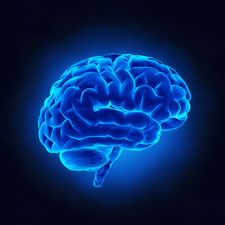Archived Content
The National Institute of Mental Health archives materials that are over 4 years old and no longer being updated. The content on this page is provided for historical reference purposes only and may not reflect current knowledge or information.
NIMH to Host Multimodal Brain Stimulation Speaker Series
Series will examine research using non-invasive brain stimulation and functional imaging including EEG, fMRI, and Transcranial Magnetic Stimulation
• Science Update
Beginning May 31, 2017, the National Institute of Mental Health (NIMH) will launch a speaker series intended to bring together leaders in the field conducting research using non-invasive brain stimulation and functional imaging including EEG, fMRI, and transcranial magnetic stimulation (TMS).

EEG and fMRI are seminal tools used to elucidate brain function in humans and non-human primates. TMS is a more recent tool, providing a method of activating the brain in a controlled and repetitive way that does not require variable subject behavioral responses. As the only FDA-cleared non-invasive brain stimulation modality, it is important for experts in the field to share the latest developments on applying TMS during EEG or fMRI. These multimodal techniques are critical to understanding the mechanism underlying the application of TMS as a therapy for depression and other disorders of the mind.
This series is organized by the NIH Non-Invasive Brain Stimulation (NIBS) working group. The NIBS working group spans representation across NIH ICs, and speaks to the cross-cutting interest of TMS and other NIBS techniques.
Title: The NIMH Multimodal Brain Stimulation Speaker Series
Time and Date: May 31, 2017, 2:30 – 3:30 p.m. ET
Web-Ex Information: https://www.eventbrite.com/e/nih-multimodal-brain-stimulation-colleen-hanlon-tickets-34044680556
The first speaker to kick-off the series is Dr. Colleen Hanlon, Associate Professor at the Medical University of South Carolina. The title of Dr. Hanlon’s presentation is “From mapping to modulation: using intrinsic neural architecture to develop transcranial magnetic stimulation as a new treatment for craving and control disorders.” In this talk, Dr. Hanlon will introduce the audience to the primary frontal-striatal circuits which are involved in governing limbic arousal and executive control, and a logical progression of five studies that she and her team have done to “map” and then modulate these circuits in cocaine dependent individuals. The talk will include a primer on basic frontal-striatal circuitry which is involved in craving and reward as well as executive control. Dr. Hanlon will also introduce studies which used multiple neuroimaging and stimulation approaches to examine these circuits. The talk will conclude with a summary of lessons learned through various challenges, and possible future directions required in order to move this field to the next phase of treatment development.
All events will be broadcast via Web-Ex and archived for later viewing. For more information and to register, click on the names below:
Colleen Hanlon, May 31, 2:30 pm
Angel Peterchev, June 7, 2:30 pm
Christian Windischberger, June 9, 1:30 pm
Faranak Farzan, June 9, 2:30 pm
Bradley Postle, June 28, 10 am
John Rothwell, October 2, 10:30 am
Andrea Antal, October 10, 11 am
Hartwig Siebner, October 17, 11:30 am
Kate Hoy, November 13, 11 am
Joel Voss, November 14, 2 pm
Risto Ilmoniemi, November 14, 3 pm
